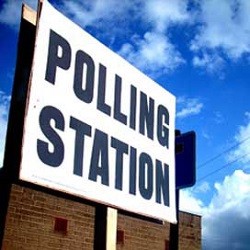By the BES FactCheck Team
Cees van der Eijk (BES and Nottingham) ,Stuart Fox (Nottingham), Mike Addelman (BES and Manchester) Annemarie Walter (Nottingham), Jonathan Rose (Nottingham), Fanni Toth (Nottingham), Fiona Williams (Nottingham), Katia Kolpinskaya (Nottingham), Josh Townsley (Nottingham), Tom Loughran (Manchester)
During election night, we undertook a fact-check in which we assessed the factual (in)correctness of all kinds of claims made by politicians, journalists and commentators about the behaviour and motivations of voters. We did so on the basis of analyses of the British Election Study Internet Panel, using data collected recently (wave 4, collected immediately before the start of the campaign). The results of this enterprise can be found on the BES website (see http://www.britishelectionstudy.com/bes-resources/bes-factcheck-ge2015/#.VUxVl_lViko) and in a large number of tweets summarising the conclusions of these fact checks, tagged with #BESFactCheck.
The work was widely seen on twitter. There were 157 retweets, 100 followers gained (aprox), 55 favourites and 27 posts.
In the course of this work we encountered some popular misconceptions about and incorrect interpretations of voters’ behaviour and motivations that, in our view, deserve extra attention:
A mandate to govern does not imply a mandate for specific policies.
Philip Hammond, former Conservative Foreign Secretary, stated on Friday morning on Radio4 (06:50am) that the outcome of the election clearly demonstrated that the voters endorsed the Conservative economic plans and the need to ‘stay the course’. A mandate to govern was indeed won by the Conservatives, as they amassed a majority of seats. Yet, this does not imply that a popular mandate exists for their economic policies. Respondents were asked how necessary they think it is for the UK Government to eliminate the deficit, which is clearly a key element in the economic plans of the Conservatives. In response to this question only 25% of respondents stated that this is ‘completely necessary’, and amongst those who intended to vote for the Conservative party this was 38%. That cannot be seen as a clear and unambiguous popular mandate for such policies. Several further examples can be found when inspecting voters’ preferences on a variety of other policy areas. More generally, we think that as a consequence of increasing regional diversity, party system fragmentation, and a lack of shared preferences even amongst people who voted for the same party, it will be difficult for any single-party government in the UK to plausibly claim to have a solid popular mandate for any specific policy, irrespective of whether it is part of its manifesto.
Party communication were largely ineffective at informing voters about party priorities
Using the BES Internet Panel we can get some insight into people’s understanding of parties’ policy positions. These data suggest that the parties were particularly ineffective at convincing voters of their policy priorities, suggesting that many voters weren’t entirely sure of what it was they were voting for when they cast their ballots.
The Labour Party, for example, put the NHS and the ‘cost of living crisis’ at the heart of its campaign. Yet, only 58% of voters recognised that the NHS was a priority of the Labour Party, and only 37% recognised the cost of living as a priority. The Conservatives based their campaign on the economy – yet only 65% of voters perceived this as one of their priorities. The Liberal Democrats seemed, as far as voters were concerned, to lack any discernible policy focus, with around a quarter of voters each feeling that the economy, the cost of living, the NHS and schools were Lib Dem priorities.
In short, the parties failed to convince a sizeable chunk of the electorate of what exactly their priorities would be if they made it into government. There are two main reasons which could account for this. First, parties were simply ineffective at communicating policy priorities to voters, to the extent that voters were unclear what exactly the parties wanted to achieve. Second, voters may have been aware of parties’ proclaimed priorities, but did not trust those proclamations.
The Lib Dems did not lose because they were blamed for unpopular coalition policies.
One of the most common claims over the last 24 hours has been that the Liberal Democrats have performed so poorly because they were being blamed for the perceived failures of the Coalition Government, while the Tories were taking the credit for its successes. The BES data, however, suggests that this is not true; rather, the Lib Dems were credited with very little, regardless of whether it was good or bad.
For example, 44% of voters felt that the economy was getting better; but only 19% attributed this to the Lib Dems, compared with 73% who credited the Tories. Two thirds of voters felt that the NHS had deteriorated under the Coalition; but only 19% blamed the Lib Dems for this, compared with 69% who blamed the Conservatives. Finally, 42% of voters felt that education had also deteriorated, and 64% blamed the Conservatives for it, while only 19% pointed to the Liberal Democrats.
Regardless of whether voters considered that things have got better or worse, the majority tend to either blame or credit the Tories; only 1 in 5 are prepared to attributed any responsibility to the Lib Dems. The Lib Dems did not do so badly because they were blamed for the failings of the Coalition; rather, the majority of voters simply seem to have felt that they were an irrelevant component of the last government.
All these, and many other incorrect claims about the motivations for voters’ choices, derive from a lack of recognition that elections are a very coarse and limited channel of communication between a population and its political parties. Yet, it is important to recognise this, partly to avoid self-delusion on the part of politicians in government (or in opposition for that matter), but more importantly to see the need to improve the quality of representative democracy by augmenting the electoral channel by other forms of communication, including in-depth survey research.

